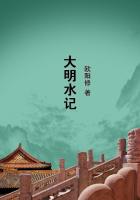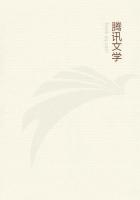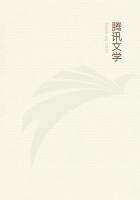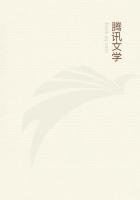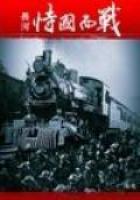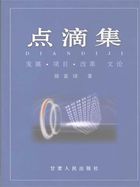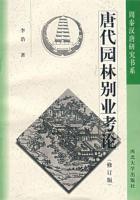For some inconceivable cause a "broad" or "liberal" clergyman always means a man who wishes at least to diminish the number of miracles; it never means a man who wishes to increase that number. It always means a man who is free to disbelieve that Christ came out of His grave; it never means a man who is free to believe that his own aunt came out of her grave. It is common to find trouble in a parish because the parish priest cannot admit that St. Peter walked on water; yet how rarely do we find trouble in a parish because the clergyman says that his father walked on the Serpentine? And this is not because (as the swift secularist debater would immediately retort) miracles cannot be believed in our experience. It is not because "miracles do not happen," as in the dogma which Matthew Arnold recited with simple faith. More supernatural things are ALLEGED to have happened in our time than would have been possible eighty years ago.
Men of science believe in such marvels much more than they did: the most perplexing, and even horrible, prodigies of mind and spirit are always being unveiled in modern psychology. Things that the old science at least would frankly have rejected as miracles are hourly being asserted by the new science. The only thing which is still old-fashioned enough to reject miracles is the New Theology.
But in truth this notion that it is "free" to deny miracles has nothing to do with the evidence for or against them. It is a lifeless verbal prejudice of which the original life and beginning was not in the freedom of thought, but simply in the dogma of materialism.
The man of the nineteenth century did not disbelieve in the Resurrection because his liberal Christianity allowed him to doubt it.
He disbelieved in it because his very strict materialism did not allow him to believe it. Tennyson, a very typical nineteenth century man, uttered one of the instinctive truisms of his contemporaries when he said that there was faith in their honest doubt. There was indeed.
Those words have a profound and even a horrible truth. In their doubt of miracles there was a faith in a fixed and godless fate; a deep and sincere faith in the incurable routine of the cosmos.
The doubts of the agnostic were only the dogmas of the monist.
Of the fact and evidence of the supernatural I will speak afterwards. Here we are only concerned with this clear point; that in so far as the liberal idea of freedom can be said to be on either side in the discussion about miracles, it is obviously on the side of miracles. Reform or (in the only tolerable sense) progress means simply the gradual control of matter by mind.
A miracle simply means the swift control of matter by mind. If you wish to feed the people, you may think that feeding them miraculously in the wilderness is impossible--but you cannot think it illiberal.
If you really want poor children to go to the seaside, you cannot think it illiberal that they should go there on flying dragons; you can only think it unlikely. A holiday, like Liberalism, only means the liberty of man. A miracle only means the liberty of God.
You may conscientiously deny either of them, but you cannot call your denial a triumph of the liberal idea. The Catholic Church believed that man and God both had a sort of spiritual freedom.
Calvinism took away the freedom from man, but left it to God.
Scientific materialism binds the Creator Himself; it chains up God as the Apocalypse chained the devil. It leaves nothing free in the universe. And those who assist this process are called the "liberal theologians."
This, as I say, is the lightest and most evident case.
The assumption that there is something in the doubt of miracles akin to liberality or reform is literally the opposite of the truth.
If a man cannot believe in miracles there is an end of the matter; he is not particularly liberal, but he is perfectly honourable and logical, which are much better things. But if he can believe in miracles, he is certainly the more liberal for doing so; because they mean first, the freedom of the soul, and secondly, its control over the tyranny of circumstance. Sometimes this truth is ignored in a singularly naive way, even by the ablest men.
For instance, Mr. Bernard Shaw speaks with hearty old-fashioned contempt for the idea of miracles, as if they were a sort of breach of faith on the part of nature: he seems strangely unconscious that miracles are only the final flowers of his own favourite tree, the doctrine of the omnipotence of will. Just in the same way he calls the desire for immortality a paltry selfishness, forgetting that he has just called the desire for life a healthy and heroic selfishness.
How can it be noble to wish to make one's life infinite and yet mean to wish to make it immortal? No, if it is desirable that man should triumph over the cruelty of nature or custom, then miracles are certainly desirable; we will discuss afterwards whether they are possible.
But I must pass on to the larger cases of this curious error; the notion that the "liberalising" of religion in some way helps the liberation of the world. The second example of it can be found in the question of pantheism--or rather of a certain modern attitude which is often called immanentism, and which often is Buddhism.
But this is so much more difficult a matter that I must approach it with rather more preparation.
The things said most confidently by advanced persons to crowded audiences are generally those quite opposite to the fact; it is actually our truisms that are untrue. Here is a case.
There is a phrase of facile liberality uttered again and again at ethical societies and parliaments of religion: "the religions of the earth differ in rites and forms, but they are the same in what they teach." It is false; it is the opposite of the fact.

